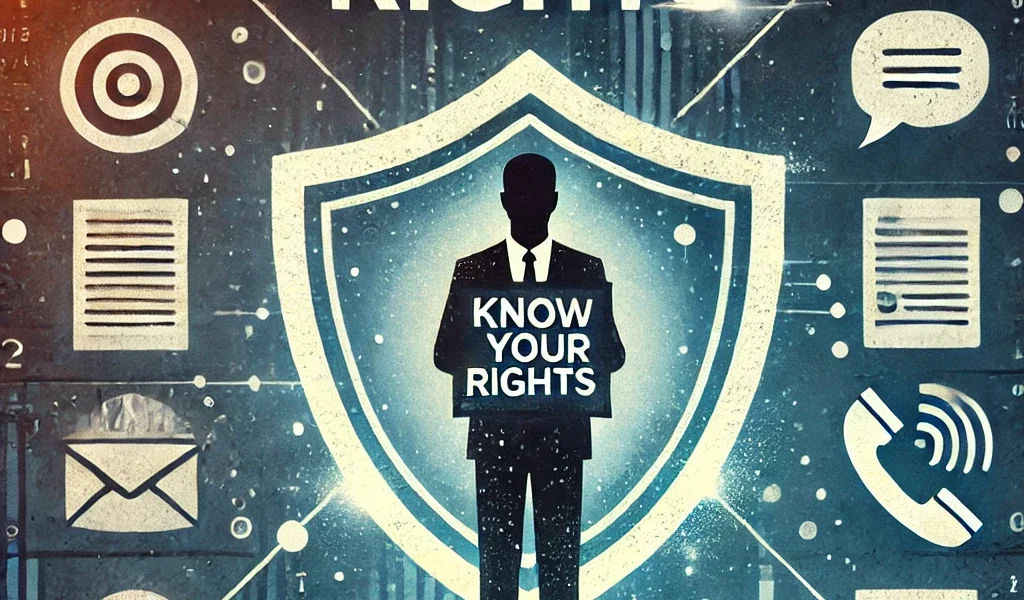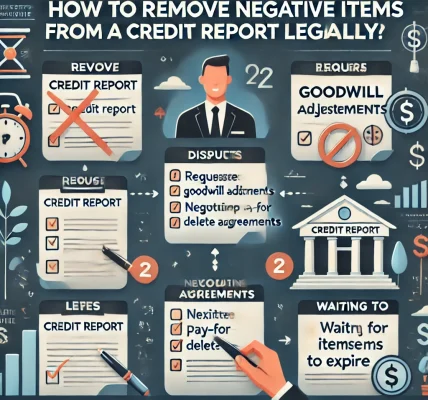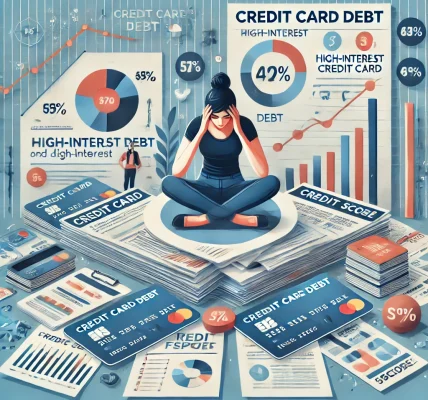Introduction
Dealing with debt collectors can be stressful, especially if they use aggressive or unethical tactics. However, it’s important to know that you have legal rights that protect you from harassment.
In this guide, we’ll explore how to handle debt collector harassment, what legal protections you have, and actionable steps to stop unfair practices while managing your debts responsibly.
Understanding Debt Collection Laws and Your Rights
Debt collection in the U.S. is regulated under the Fair Debt Collection Practices Act (FDCPA) and other consumer protection laws. These laws ensure that collectors follow ethical practices when trying to collect a debt.
What Debt Collectors CAN Do:
- Contact you via phone, mail, email, or text (within legal limits).
- Request payment for a legitimate debt.
- Report delinquent accounts to credit bureaus.
- Take legal action if the debt is valid.
What Debt Collectors CANNOT Do:
- Call you before 8 AM or after 9 PM (your local time) without permission.
- Threaten violence, arrest, or legal action they cannot take.
- Use obscene language or intimidation tactics.
- Contact your workplace if you’ve told them not to.
- Misrepresent themselves or lie about the amount owed.
- Contact you after you’ve requested them to stop in writing.
Steps to Stop Debt Collector Harassment
1. Verify the Debt
Before engaging with a debt collector, always verify whether the debt is legitimate and belongs to you.
How to Verify:
- Ask the collector to send a written validation notice (they must provide this within 5 days of initial contact).
- Compare the information with your own records.
- If you don’t recognize the debt, request further proof in writing.
Tip: If you believe the debt is incorrect, you have 30 days to dispute it in writing.
2. Know Your Legal Rights and Keep Records
If a collector is violating your rights, document all interactions.
Keep a Record of:
- Phone calls (date, time, name of agent, and summary of conversation).
- Letters and emails received.
- Any threats or abusive language used.
- Proof of payments and account statements.
Tip: If a debt collector harasses you, report them to the Consumer Financial Protection Bureau (CFPB) or your state attorney general’s office.
3. Request a Cease-and-Desist Letter
If you want a collector to stop contacting you, you can send a written request stating that they should cease communication.
How to Write a Cease-and-Desist Letter:
- Include your name, address, and account number (if applicable).
- Clearly state that you request they stop all communications.
- Send the letter via certified mail with a return receipt to have proof.
After receiving the letter, the collector can only contact you once more to confirm they will stop or inform you of legal action.
Important: This doesn’t erase the debt. They can still pursue legal collection methods.
4. Dispute the Debt (If Incorrect)
If the debt is inaccurate, fraudulent, or beyond the statute of limitations, you can dispute it.
How to Dispute a Debt:
- Send a debt validation request in writing within 30 days of first contact.
- Include supporting documents (receipts, past payments, or identity theft reports if applicable).
- Contact the credit bureaus (Experian, Equifax, and TransUnion) to remove invalid debts from your report.
5. Negotiate a Settlement or Payment Plan
If the debt is valid but unaffordable, you may be able to negotiate a settlement or payment plan.
Options for Settling Debt:
- Lump Sum Settlement: Pay a reduced amount in full.
- Installment Plan: Set up smaller, manageable payments.
- Debt Consolidation: Combine multiple debts into one lower payment.
Tip: Get any settlement agreement in writing before making payments.
6. Report Abusive Debt Collectors
If a debt collector violates your rights, you can report them.
Where to File Complaints:
- Consumer Financial Protection Bureau (CFPB) (www.consumerfinance.gov)
- Federal Trade Commission (FTC) (www.ftc.gov)
- State Attorney General’s Office (varies by state)
How to Avoid Debt Collection Issues in the Future
1. Stay on Top of Your Debts
- Make on-time payments to avoid accounts going to collections.
- Set up automatic payments or reminders.
2. Check Your Credit Report Regularly
- Get a free annual report at AnnualCreditReport.com.
- Dispute any inaccuracies to keep your credit healthy.
3. Avoid Scams
- Never give out personal information unless you verify the collector’s legitimacy.
- Watch for threats, demands for payment in gift cards, or high-pressure tactics.
Conclusion: Take Control of Debt Collection Calls
Debt collectors must follow the law, and you have the power to stop harassment. By knowing your rights, keeping records, and taking legal steps, you can protect yourself while responsibly managing your debts.
Key Takeaways
✔ Verify all debts before making payments. ✔ Keep records of all communication. ✔ Send a cease-and-desist letter if necessary. ✔ Negotiate payment terms if you owe the debt. ✔ Report illegal harassment to the CFPB, FTC, or state authorities.




